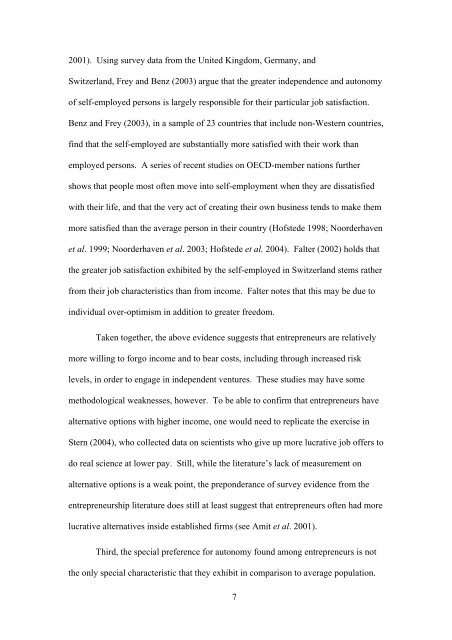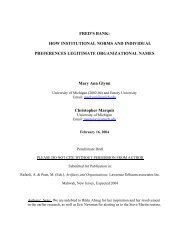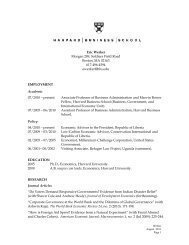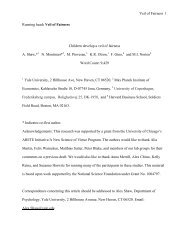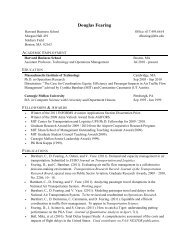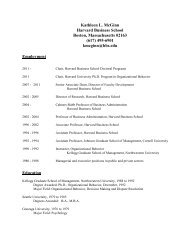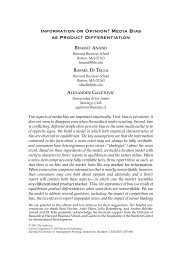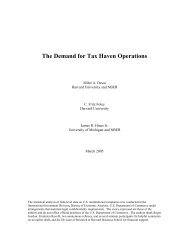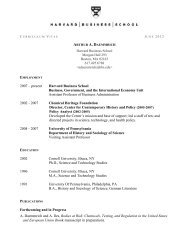Social Dimensions of Entrepreneurship. - People. hbs .edu ...
Social Dimensions of Entrepreneurship. - People. hbs .edu ...
Social Dimensions of Entrepreneurship. - People. hbs .edu ...
You also want an ePaper? Increase the reach of your titles
YUMPU automatically turns print PDFs into web optimized ePapers that Google loves.
2001). Using survey data from the United Kingdom, Germany, and<br />
Switzerland, Frey and Benz (2003) argue that the greater independence and autonomy<br />
<strong>of</strong> self-employed persons is largely responsible for their particular job satisfaction.<br />
Benz and Frey (2003), in a sample <strong>of</strong> 23 countries that include non-Western countries,<br />
find that the self-employed are substantially more satisfied with their work than<br />
employed persons. A series <strong>of</strong> recent studies on OECD-member nations further<br />
shows that people most <strong>of</strong>ten move into self-employment when they are dissatisfied<br />
with their life, and that the very act <strong>of</strong> creating their own business tends to make them<br />
more satisfied than the average person in their country (H<strong>of</strong>stede 1998; Noorderhaven<br />
et al. 1999; Noorderhaven et al. 2003; H<strong>of</strong>stede et al. 2004). Falter (2002) holds that<br />
the greater job satisfaction exhibited by the self-employed in Switzerland stems rather<br />
from their job characteristics than from income. Falter notes that this may be due to<br />
individual over-optimism in addition to greater freedom.<br />
Taken together, the above evidence suggests that entrepreneurs are relatively<br />
more willing to forgo income and to bear costs, including through increased risk<br />
levels, in order to engage in independent ventures. These studies may have some<br />
methodological weaknesses, however. To be able to confirm that entrepreneurs have<br />
alternative options with higher income, one would need to replicate the exercise in<br />
Stern (2004), who collected data on scientists who give up more lucrative job <strong>of</strong>fers to<br />
do real science at lower pay. Still, while the literature’s lack <strong>of</strong> measurement on<br />
alternative options is a weak point, the preponderance <strong>of</strong> survey evidence from the<br />
entrepreneurship literature does still at least suggest that entrepreneurs <strong>of</strong>ten had more<br />
lucrative alternatives inside established firms (see Amit et al. 2001).<br />
Third, the special preference for autonomy found among entrepreneurs is not<br />
the only special characteristic that they exhibit in comparison to average population.<br />
7


